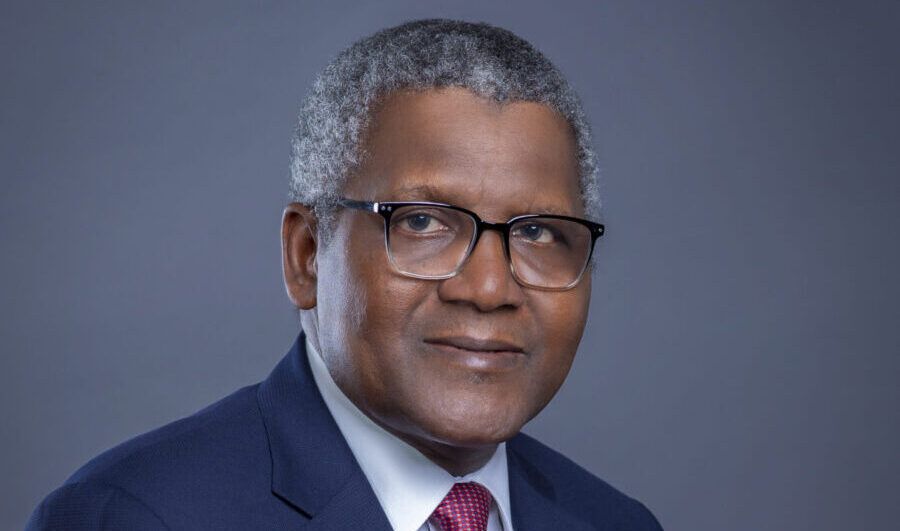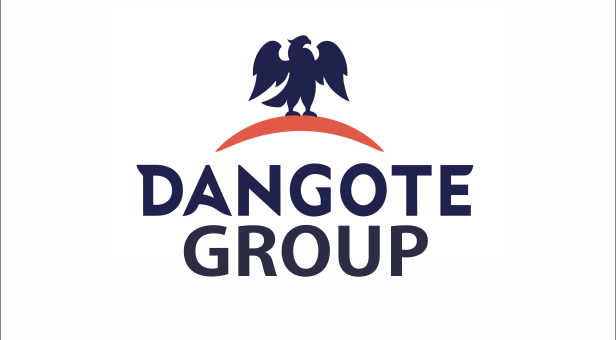
In the heart of Africa, on a continent bubbling with energy and ambition, stands an iconic figure who embodies the very essence of entrepreneurial dreams and economic success. More than just a businessman, Aliko Dangote is a symbol of a transforming Africa.
Born on April 10, 1957, in Kano, Nigeria, Alhaji Aliko Dangote is a Nigerian businessman best known as Africa’s richest man. In 2024, he topped the list of African billionaires for the 13th consecutive time, with a fortune estimated at $13.9 billion in Forbes Africa’s February 2024 edition. He has also been featured on CNBC’s list of ‘25 Most Influential Businessmen in the World‘ who have changed and shaped the century.
His fortune primarily comes from investments in construction, agriculture, food processing, and more recently, oil. As the founder and chairman of Dangote Group, one of the continent’s most powerful industrial conglomerates, Dangote has become an iconic figure not only in Africa but also on the global economic stage.
I - Aliko Dangote's beginnings
From his humble beginnings in the bustling streets of Kano, where he grew up in a family of influential traders, Dangote has demonstrated extraordinary vision and determination.
His father, Mohammed Dangote, was a wealthy peanut exporter. Upon his death in 1966, it was his grandfather who took him under his wing and taught him the ropes of the business world. After completing his secondary education in Kano, Dangote pursued studies in management and commerce at Al-Azhar University in Egypt. Upon returning to Nigeria, he began his business career in 1978, trading rice, sugar, and cement before moving into large-scale manufacturing and founding his own company in 1981.
On the international stage, Dangote serves on the board of the Corporate Council on Africa and is a member of the steering committee of the United Nations Secretary-General’s Global Education First Initiative, as well as a member of the Clinton Global Initiative, the McKinsey Advisory Council, and the World Economic Forum’s International Business Council. In September 2016, he was appointed co-chair of the US-Africa Business Center by the U.S. Chamber of Commerce. In April 2017, he joined the board of the Clinton Health Access Initiative, which helps countries set up systems to provide healthcare services to their populations.
His journey is a true epic, a shining demonstration of what passion, ingenuity, and hard work can achieve. In less than four decades, he has transformed a small distribution business into one of the continent’s largest industrial conglomerates, Dangote Group.
II - The Rise of Dangote Group

Dangote Group was founded in 1981 as a small distribution company but quickly evolved into a major industrial conglomerate, becoming the largest conglomerate in West Africa. The group is currently present in 17 African countries and is a market leader in cement on the continent. One of its subsidiaries, Dangote Cement Plc, is the largest publicly traded company in West Africa and the first Nigerian company to join the Forbes Global 2000 Companies list.
The company initially invested in cement production, a strategic sector in Nigeria and Africa, and then experienced explosive growth.
In addition to cement, Dangote Group has diversified its operations into several other sectors. The company owns significant production units for sugar, salt, and flour. Dangote is also the owner of several oil and gas refineries, including the largest oil refinery in Africa, located in Lekki, Nigeria, with a processing capacity of up to 650,000 barrels per day.
This diversification has allowed the company to reduce its reliance on a single sector and maximize its profits.
III - The Economic and Social Impact
Dangote’s success extends beyond his financial achievements. His company has had a significant impact on both the Nigerian and African economies. For example, Dangote Cement has played a role in reducing construction costs in Africa by increasing the supply of cement at competitive prices.
Furthermore, the group’s activities have generated thousands of jobs across the continent, thereby improving the living conditions of many people.
As a dedicated philanthropist, Dangote donated an initial endowment of $1.25 billion to the Dangote Foundation in March 2014, enabling it to expand its efforts in health, education, and economic empowerment. The foundation has supported vaccination programs, school construction, and sanitation projects.
Additionally, he collaborates with the Bill and Melinda Gates Foundation to combat polio. He also serves on the board of ONE, the anti-poverty organization co-founded by Bono.
IV - Challenges and Controversies
Despite his success, Aliko Dangote has not been without challenges and controversies. Dangote Group faced criticism a few years ago regarding working conditions in some of its factories and its political influence in Nigeria. The concentration of economic power in the hands of a single individual has also raised concerns about competition and market monopolization.
In July 2024, Nigerian legislators launched an investigation into the alleged importation of contaminated fuel into the country. This move aimed to address a conflict between Aliko Dangote’s oil refinery and the oil industry regulator. The committee called on stakeholders in the Nigerian oil sector to ‘de-escalate tensions’ exacerbated by the regulator’s accusations against Dangote.
Aliko Dangote remarked, ‘I would never have embarked on this project if I had anticipated the difficulties. We launched 31 projects simultaneously, which created numerous challenges.‘ The commission, led by Ikenga Ugochinyere, also examined allegations that licenses were issued without proper oversight and that non-compliant laboratories contributed to the contamination of petroleum products.
Dangote added, ‘The oil mafia is far worse than the drug mafia. While the adversaries are known in the drug trade, in oil, the enemy is invisible and can be infiltrated within the company itself. It is a national shame as we have been trying to solve the fuel shortage problem since 1972.’ This dispute between Dangote and Nigerian authorities erupted following the presidential elections.
Despite these obstacles, Dangote has demonstrated remarkable ability to navigate these challenges, investing in diversification projects and continuously improving his operations.
Aliko Dangote is an exceptional entrepreneur whose success results from strategic vision, skillful management, and unwavering determination. His influence extends beyond business, positively impacting the economy and communities across Africa. Despite facing challenges and controversies, he remains a central figure in the African economic landscape, symbolizing both the continent’s potential and its complexities.
As Africa’s richest man, Aliko Dangote continues to shape the continent’s economy and lead development initiatives aimed at improving the living conditions of Africans. His journey offers a valuable lesson on the power of innovation, commitment, and resilience in the business world.
Feel free to share this article with entrepreneurs in your network and browse our blog to discover more inspiring leaders.
sources :
africa news
wikipedia
Reingex
Dangote.com
Forbes Afrique







